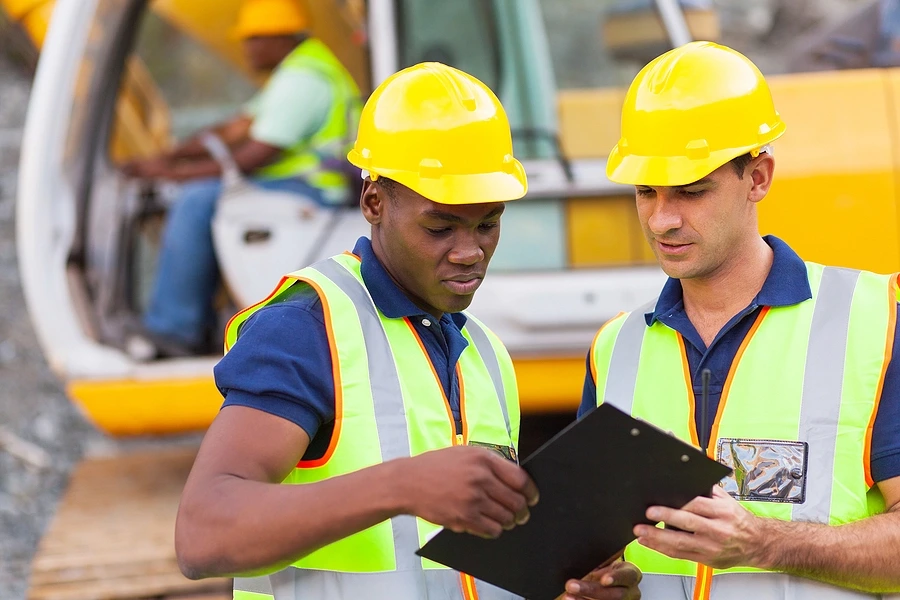Understanding the Legal Protections for Injured Construction Workers in Orlando

Construction work is inherently dangerous. Workers face heavy machinery, elevated heights, and unpredictable environments that increase the risk of accidents and injuries. When a construction worker in Orlando is injured on the job, understanding their legal rights is essential for securing proper medical care, wage replacement, and compensation for long-term impacts. Navigating these rights can be complex, but knowing the options available can make a significant difference in recovery and financial stability.
Workers’ Compensation Protections
In Florida, most construction workers are covered by workers’ compensation, a no-fault insurance system that provides benefits to employees injured on the job. Workers’ compensation is designed to cover:
-
Medical Expenses: All necessary treatment related to the workplace injury, including hospital visits, surgeries, medications, and rehabilitation.
-
Lost Wages: Temporary total or partial disability benefits replace a portion of your income while you are unable to work.
-
Permanent Disability Benefits: If an injury results in lasting impairment, workers’ compensation may provide compensation for reduced earning capacity.
-
Vocational Rehabilitation: Assistance with retraining or transitioning to a role that accommodates your medical restrictions.
Workers’ compensation is intended to provide support without requiring employees to prove employer negligence. However, benefits are not always automatically granted, and disputes with insurance carriers can occur.
Legal Rights Beyond Workers’ Compensation
While workers’ compensation covers most workplace injuries, certain circumstances may allow injured construction workers to pursue additional legal action:
-
Third-Party Liability Claims: If another party, such as a subcontractor, equipment manufacturer, or property owner, contributed to the accident, a worker may file a separate claim for damages not covered by workers’ compensation.
-
Negligence Claims: In some situations, proving that a third party acted negligently can allow injured workers to recover compensation for pain and suffering, loss of enjoyment of life, or additional economic losses.
-
Government Regulations: OSHA (Occupational Safety and Health Administration) guidelines mandate safety standards on construction sites. Violations of these regulations can strengthen claims and may result in penalties for employers or contractors.
Understanding when and how these options apply is critical to maximizing compensation. A knowledgeable personal injury attorney can help determine which avenues are viable.
Common Construction Injuries in Orlando
Construction workers are exposed to a variety of risks. Some of the most common injuries include:
-
Falls: Falls from scaffolding, ladders, or roofs are a leading cause of serious injury and fatalities in the construction industry.
-
Struck-by Accidents: Falling objects, moving machinery, or construction vehicles can cause significant trauma.
-
Electrocution: Contact with live wires or faulty electrical systems can result in severe injury or death.
-
Repetitive Strain Injuries: Continuous heavy lifting, bending, or operating machinery can lead to chronic musculoskeletal conditions.
-
Crushing Injuries: Collapses of structures, equipment malfunctions, or being pinned between objects can cause serious harm.
These injuries often require extensive medical treatment, rehabilitation, and time away from work, making legal protections and compensation crucial.
Reporting an Injury
Promptly reporting a workplace injury is essential to protecting your legal rights in Orlando. Steps to follow include:
-
Notify Your Employer Immediately: Florida law requires injured workers to report the injury as soon as possible, ideally on the same day it occurs.
-
Document the Incident: Take notes about how the injury occurred, the location, and any witnesses present. Photographs of the scene or equipment can be helpful.
-
Seek Medical Attention: Even if injuries seem minor, obtaining a professional evaluation ensures proper treatment and creates a record linking the injury to your job.
-
File a Workers’ Compensation Claim: Submit the claim through your employer or their insurance carrier to begin receiving benefits.
Failing to report an injury promptly can jeopardize eligibility for workers’ compensation and other claims.
Dealing with Insurance and Employers
While workers’ compensation is intended to provide swift support, disputes can arise. Insurance companies may attempt to minimize benefits, delay payment, or question the extent of the injury. Similarly, some employers may not fully comply with reporting or treatment procedures.
A personal injury attorney can advocate for injured construction workers by:
-
Communicating directly with insurance carriers
-
Gathering and organizing medical records, witness statements, and evidence of negligence
-
Ensuring that all eligible benefits are received
-
Representing the worker in hearings or litigation if necessary
Professional guidance is essential to navigate complex claims and maximize compensation.
Long-Term Considerations for Injured Workers
Construction injuries can have lasting consequences, including chronic pain, permanent disability, or limitations in performing future work. Legal protections extend to these long-term effects:
-
Permanent Disability Compensation: Workers’ compensation may provide benefits for permanent impairments that affect earning capacity.
-
Vocational Training and Job Placement: Programs may be available to help injured workers transition to roles that accommodate physical limitations.
-
Third-Party Settlements: Claims against negligent third parties may provide additional financial support beyond workers’ compensation.
Planning for long-term recovery and employment is a critical aspect of protecting both health and financial security.
The Role of a Personal Injury Lawyer
Consulting a personal injury lawyer in Orlando can significantly improve outcomes for injured construction workers. An attorney can:
-
Evaluate the circumstances of your injury and recommend the best legal strategy
-
Assist with workers’ compensation claims and disputes
-
Identify potential third-party claims and pursue additional compensation
-
Coordinate with medical professionals for evidence and documentation
-
Represent you in hearings, negotiations, or litigation to protect your rights
Legal guidance ensures that injured workers receive the support and compensation they are entitled to while minimizing stress during recovery.
Conclusion
Injured construction workers in Orlando face complex legal and financial challenges. Workers’ compensation provides critical support for medical expenses and lost wages, but additional legal protections may be necessary to fully address the impact of an injury. Prompt reporting, proper documentation, and professional legal guidance are essential for maximizing benefits and safeguarding future employment opportunities.
By understanding their rights and taking proactive steps, construction workers can focus on recovery while ensuring they receive fair compensation for both immediate and long-term consequences of workplace injuries. Consulting an experienced Orlando personal injury lawyer helps navigate the legal system, providing peace of mind and the resources needed to protect health, career, and financial stability.

 Call Us Today - It's Free
Call Us Today - It's Free